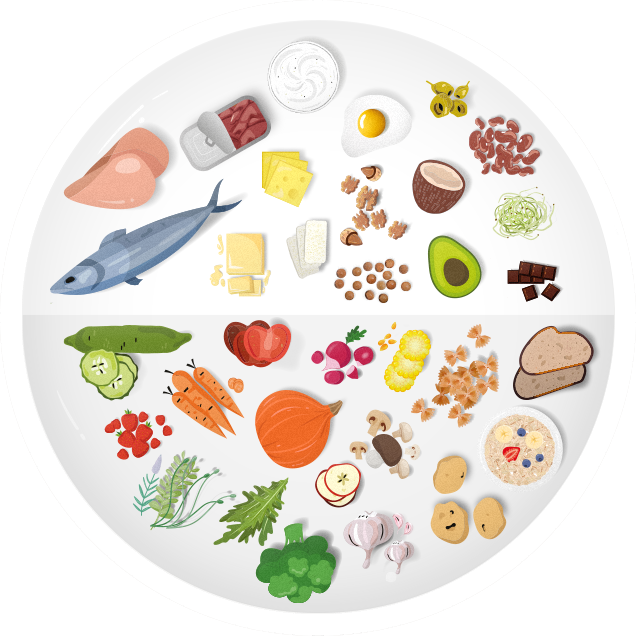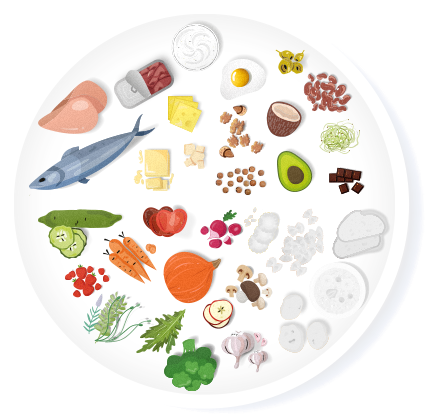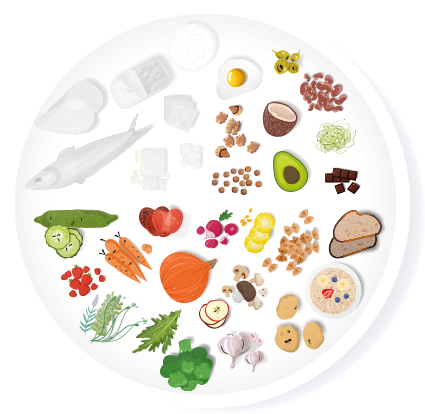Guide des vrais aliments
Une alimentation saine repose sur de vrais aliments et sur des repas préparés à partir de ces aliments. Les éléments essentiels pour la santé ne peuvent pas être exprimés par un rapport miraculeux de nutriments, un nombre de grammes de tel ou tel aliment ou par un nombre de calories ou de portions, car l´alimentation saine peut prendre différentes formes. Nombreuses personnes apprécieront une alimentation équilibrée comme représentée sur l´illustration, une alimentation végétale plus riche en glucides peut mieux profiter à certains et une alimentation faible en glucides avec plus de graisses et de protéines à d´autres.
Sources de lipides et de protéines
viande et abats, poisson et fruits de mer, lait et produits laitiers non sucrés, œufs, légumineuses, noix et graines / huiles végétales vierges, beurre, saindoux
Sources de glucides
légumes et fruits, champignons, pommes de terre, gruau, millet, sarrasin, riz, flocons d'avoine, pain au levain, pâtes
Besoins de l´homme
Suffisamment d´activité physique, sommeil, séjour en plein air et au soleil, bonne humeur et amis





